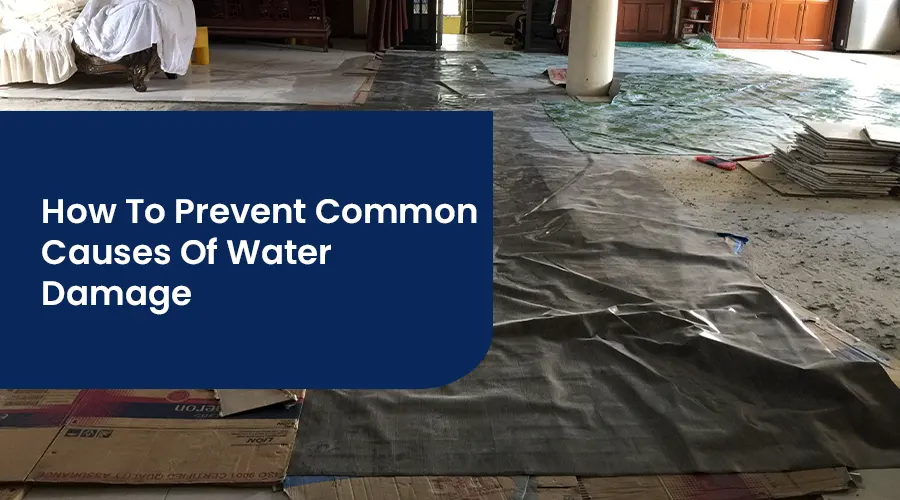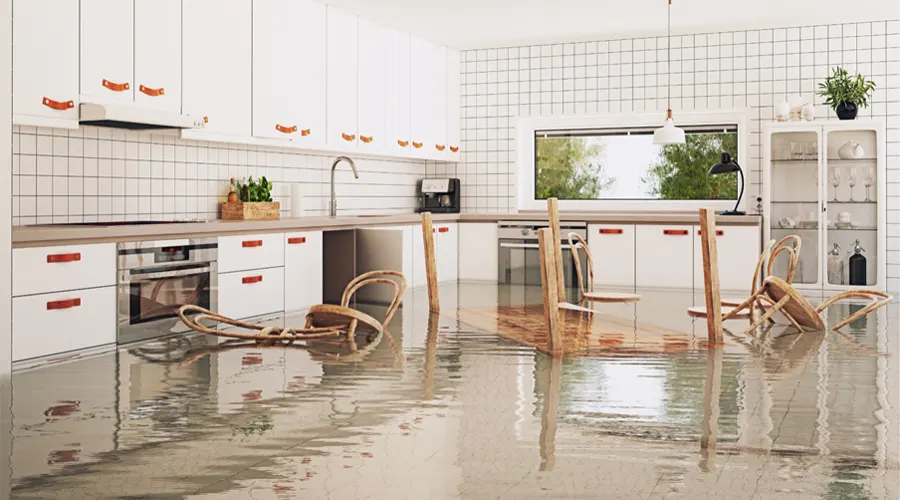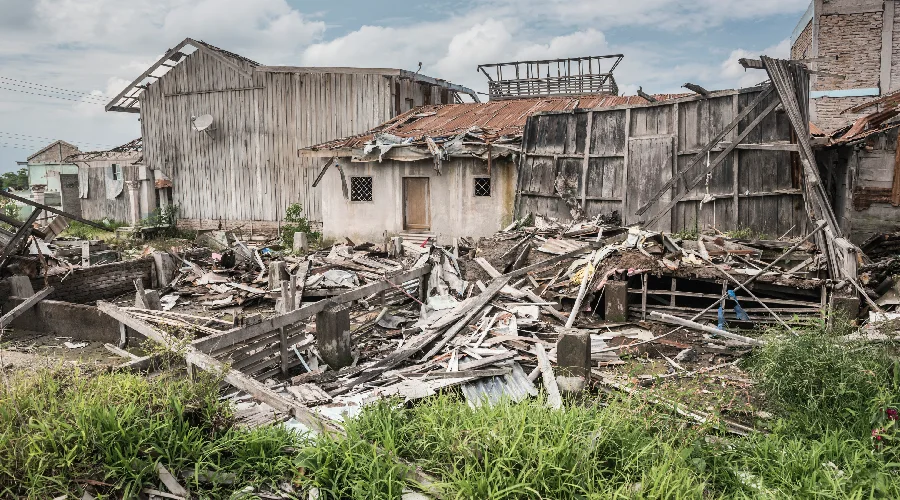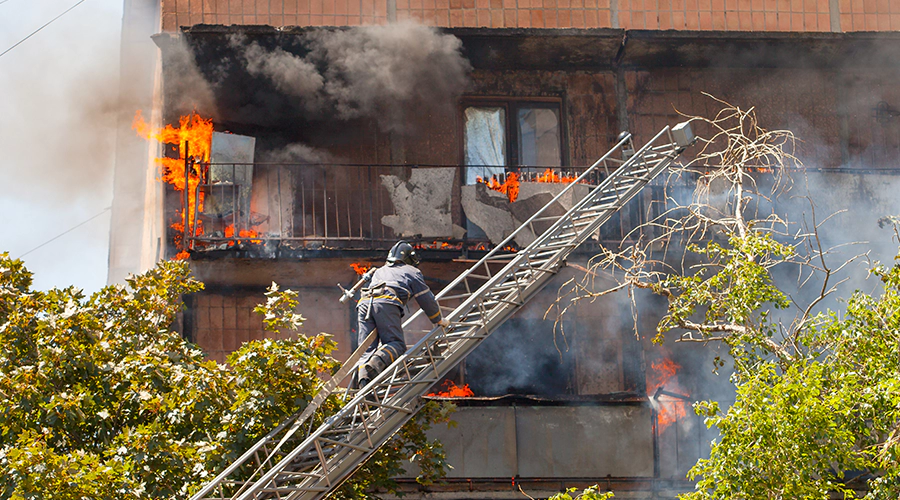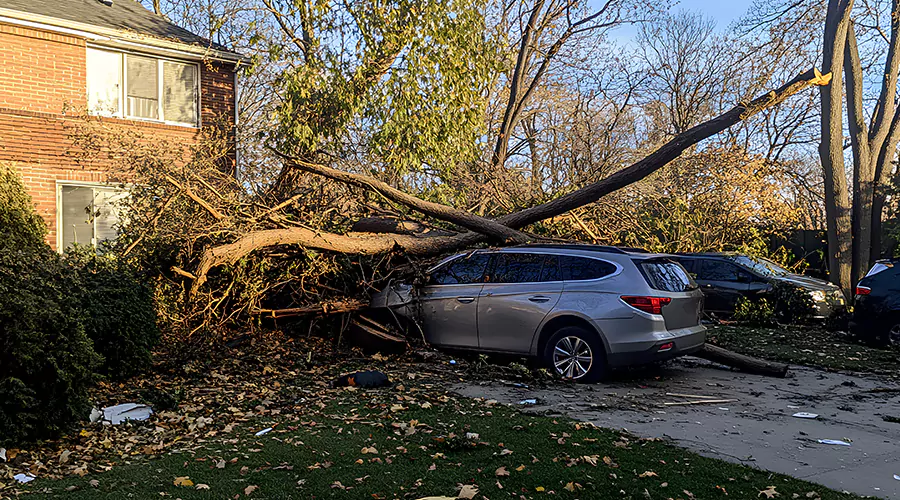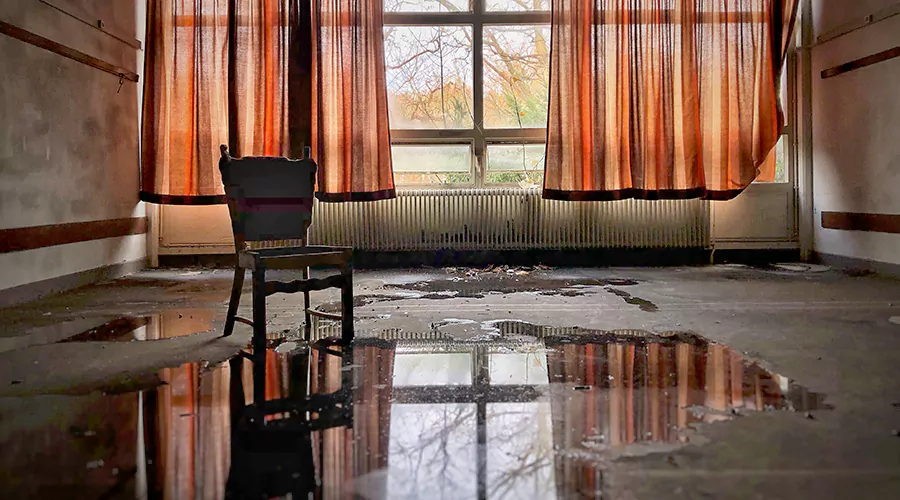Natural water sources are crucial for biological life and the functioning of contemporary civilization. However, water damage poses a big threat to homeowners since broken pipes will destroy their property and cultivate mold, which leads to health complications. That is why you should avoid water damage and safeguard your house and loved ones.
Calling water damage just a result of a flood or hurricane is a big mistake because it can result from other causes. Faucets, shower heads, or any other sprinkler system in your piping can cause water damage anywhere in yours. So, here are some preventative measures on your own to avoid the water damage:
Water can affect many processes, and water damage is the end result of any penetration of spaces where the fluid should not be. This is brought about by one of the following: water infiltration. This may be due to flooding, broken pipes, leaking roofs, humidity, etc. It eventually results in Structural Damage and mold formation and poses health dangers if the damage is not tended to swiftly.
Classifications of Water Damage
The type of water needed to categorize the water damage is three namely:
Clean Water Damage
The first type of water damage is clean water, and the source could be a dripping tap or a burst water supply pipe. Even though clean water is relatively common, too much of it can cause moisture and, consequently, mold—which is unhealthy for your body.
Gray Water Damage
The second type is water that is contaminated to some extent by faulty sewers, detergents, or soaps. It breeds bacteria, and if not restored within the shortest time possible, it qualifies as category 3 water damage. This water is best kept off or avoided whenever possible, and one should consult professionals to get rid of it from a house.
Black Water Damage
Black water damage is the third and most serious category; it involves water with chemicals, pesticides, sewage and other types of pollutants. The water can be clear, see-through and still be contaminated with the bacteria and other chemical compounds. It would also be wrong to try and handle black water damage alone if you have such a problem in your home then you should consult a specialist.
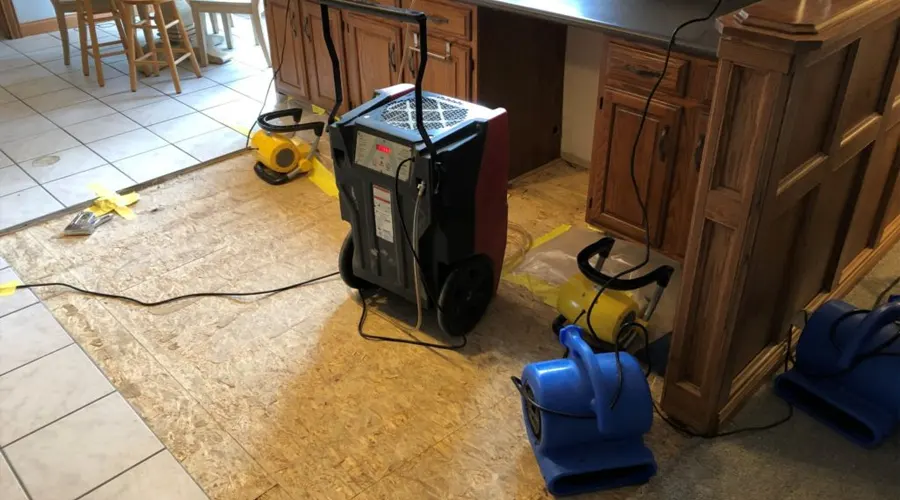
Common Causes of Water Damage
Water damaged can also be caused by natural calamities like floods, earthquakes, and hurricanes and tornadoes. Some causes of water damage include; Plumbing problems like, leakage, broken pipe, choked gutter, blocked drain, water-tank leakage, weak roof and sewage overflowing. Besides that, burst pipes and water lines, washing machines, dishwashers and other appliance leak and overflow can result to huge water damage.
Measures that can be taken following Water Damage
The best thing that one can do is to try and avoid water damage in the first place once it has happened. The general maintenance of these plumbing and appliance can help familiarize issues that may be on a small level and hence prevent them from getting worse. Sump pump flood sensors will go a long way in helping you to know when there is water. They also include clearing of debris such as leaves and other materials from gutters and downspouts to prevent water from penetrating your home or property.
If you think your property has been affected by water, it’s best that you respond promptly. Here are some steps you can take in case of water damage:
Ensure safety first
Safety should come first so switch off the electricity and the gas at your home in order to prevent any shock from electricity or fire outbreak.
Shut off the water
Turn off the main water supply and find your main water shut-off valve to close it if it hasn’t been closed by the professionals. If you can't find your local utility, you can contact them for more information.
Contact experts of water damage and Restoration Company
In case of extensive damage, it is advisable to contact a Water Damage Restoration company that will complete the work carefully and without risking additional damage. Most providers have the equipment and expertise to manage massive destruction with professional restoration and cleanup of the structure.
Use the camera for documentation in the case of insurance claims.
It would be a great incentive if you could take images of the areas as would help in case you need to make an insurance claim.
Carefully wash out as much water as is possible
Try to eradicate as much as possible with a pump, bucket, or towels to stop the spread of mold and further damage.
Dry out the affected area
Avoid using fuels like oil, gas, coal, or kerosene to start fires, lest you cause a fire outbreak in your home.
Clean and disinfect
Among the sanitary measures, the territories affected by the flood would need to be washed and disinfected to prevent the growth of bacteria and mold.
Consider temporary relocation
If the water damage is severe and the homes or property cannot be further lived in, consider a temporary move to a hotel or a relative's house.
Sweep as well as clear any kind of harmed compound
If the fire was severe, you might require redoing more severe damages, such as water damage to plaster walls or even the floor. It is advisable to open the affected area and allow it to dry out when the season allows in order to salvage such materials.
Check for mold growth
Mold can start growing within 24-48 hours of water damage. Check for any signs of mold growth and address any problems promptly.
Prevent future water damage
Take steps to prevent future water damage, such as fixing leaks and ensuring proper ventilation in areas prone to excess moisture.
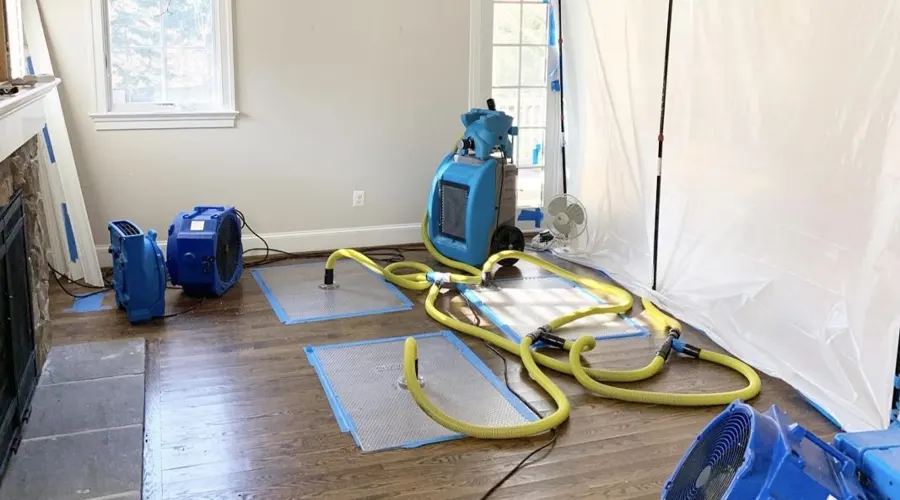
Tips To Protect Your Home From Water Leaks And Damage
To prevent water damage in your home or any other property, it's important to take a proactive approach. Following are some tips to help you protect your home from water leaks and damage.
Stay vigilant about leaks
Keep an eye out for signs of leaks, such as mold, mildew, or unusual odors, and monitor your water bill closely. Investigate any suspicious signs promptly.
Maintain your appliances and roof
Poorly maintained appliances and roofs are common sources of leaks and water damage. Make sure to keep your washing machine hoses and other appliances in good condition, and address any issues with your roof promptly.
Clean out your gutters
If gutters become blocked then water will find its way down your roof and into the structural foundations of your home and, therefore, should be kept clear.
Take care of the plants and trees encircling the premises
When landscaping or tilling around your home, make sure you are conscious of the pipes in and around your home. If trees and shrubs grow around your pipes, then you are likely to have leakages because of their strong roots.
Water detection devices should be considered
Buying a water detection device is useful because it will help you find out if there is water. You can place these devices close to well-known leakage origins, like sump pumps and water heaters, and some of them can be connected to Wi-Fi so they will notify you if they have sensed water.
Conclusion
Flood is a very painful experience when calamity happens and it is very sad to know that a lot of house and establishment owners experience this unfortunate event. This destructive and costly damage can happen suddenly and quickly, sometimes taking just a short time to cripple a country’s economy. With this knowledge in mind, one can act quickly and prevent or minimize cases of water damage happening in their homes.
Managing water damage is always tricky, especially when you have no idea where to start. As you can see, having a detailed guide on water damage repair is a must in order to restore your home or business to its normal state as quickly and safely as possible.


